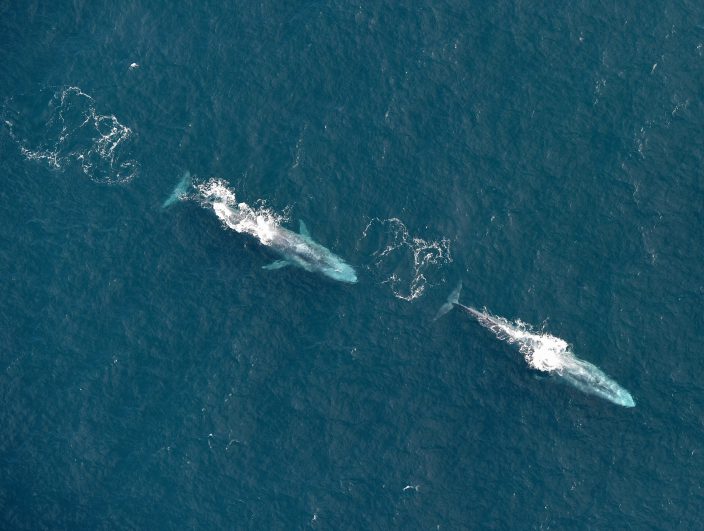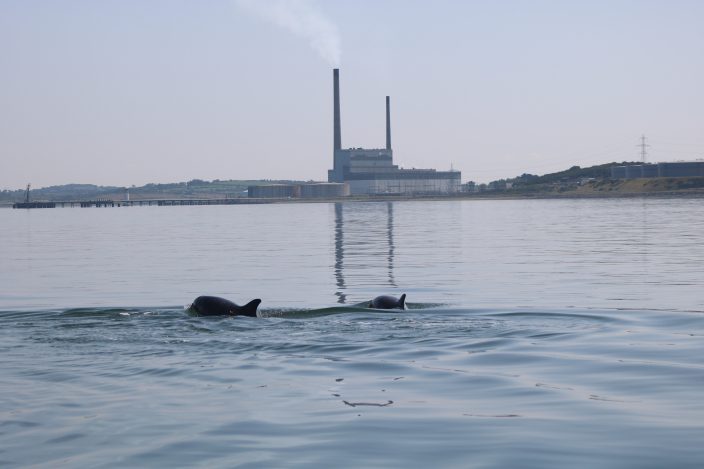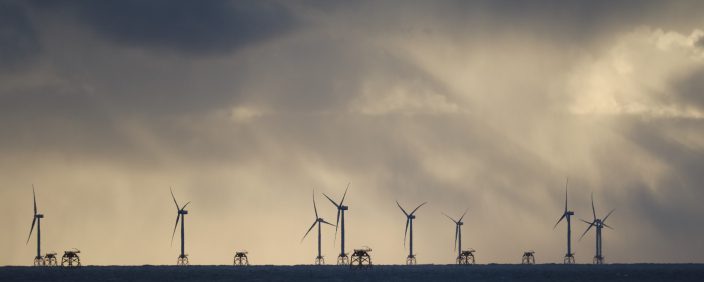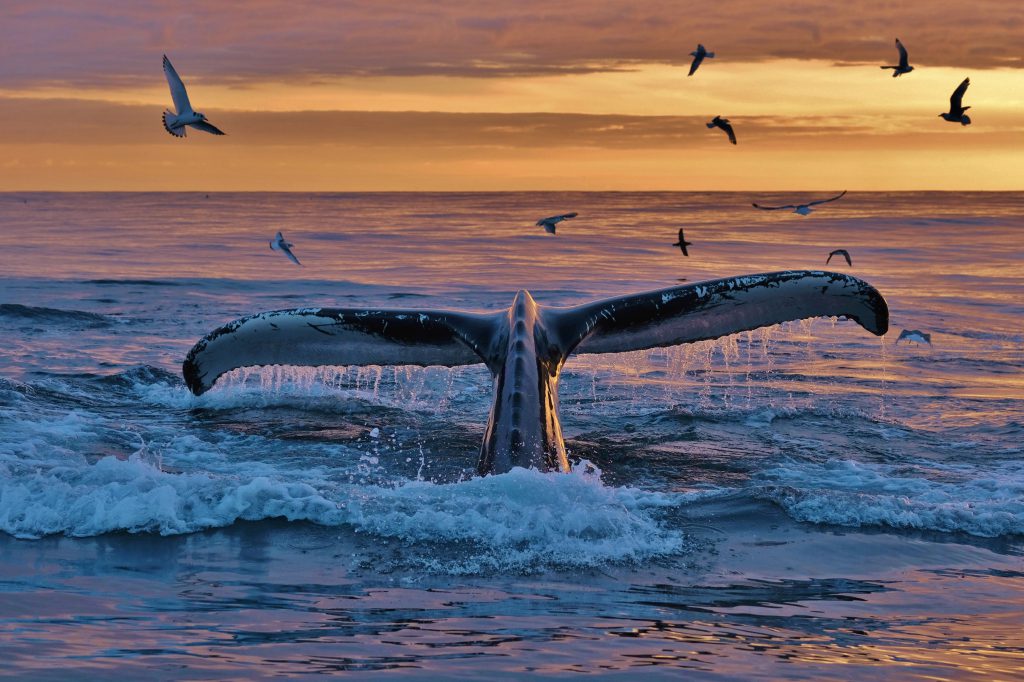What’s happening with MPAs?
Ireland currently awaits new legislation on Marine Protected Areas (MPAs) to come for consideration before Government. Developed under the Marine Strategy Framework Directive, the MPA Act will be the first time Ireland has designed legislation dedicated specifically protecting our vulnerable marine environment. The Act is to contribute to the protection of a minimum of 30% of our marine area by 2030, the so-called 30 by 30 which is to be reflected across all European waters under the EU Biodiversity Strategy for 2030.

What benefits will MPAs bring?
Correctly identified, designated and managed MPAs have the potential to transform our seas by managing human activities and allowing for spatial protection of vulnerable species and habitats. Left alone, marine ecosystems can recover quickly from human pressures; habitats such as biogenic reefs and kelp forests can re-establish themselves creating complex three-dimensional habitat on and around which intricate communities of seaweeds and marine invertebrates can flourish. Spawning of fish can occur undisturbed and the juveniles thrive and grow to maturity, with large mature fish producing more eggs than smaller ones. Natural food webs, not seen in our lifetimes, can develop in all their beauty and complexity allowing increasing numbers of forage fish to attract predators, including bigger fish, birds, whales, dolphins and porpoises.
All trophic levels in the ecosystem will benefit under adequate legal protection from pressures which may arise from fishing, shipping, offshore renewable energy, hydrocarbon extraction, deep sea mining, engineering works, military activity and marine recreation. Clearly these pressures exist on a scale: bottom trawling and dredging are more damaging to the sea floor than pot fishing or gillnetting; a cargo ship passing through an area creates underwater noise but does not have the same impact as a seismic survey or mid-frequency naval sonar. It is not yet clear to what extent the government intends to manage human activities in MPAs, or what methods they will bring to bear to ensure adequate monitoring and compliance with new legislation.
New stand-alone MPA legislation will create unique opportunities to safeguard marine life in ways over and above the protections offered by the existing network of Natura 2000 sites under the Birds and Habitats Directives; a 2020 review by the European Court of Auditors concluded that the existing MPA system was failing to protect Europe’s marine species and habitats and had not restored seas to good environmental status. A national database of relevant baseline data at a sufficient spatial and temporal resolution to inform management and identify trends over time should form part of the on-going MPA project. This would enable adaptive management of MPAs down to a seasonal level and would quantify the effects and benefits of designation, both within and outside these protected areas.

What are the potential barriers to MPA designation?
Meaningful management and designation of MPAs needs to take into account the apparently competing interests of a broad range of stakeholders. Chief among them is the fishing industry, whose long-term livelihood depends on access to healthy fish stocks. The local inshore fleet of smaller boats, which fish close to the coast, operates under national regulation and without a system of quotas for certain key species such as lobster, crab and sprat. Fishing industry representatives cite falling catches and poor quota management, and are now also worried about loss of access to fishing grounds from offshore windfarms and MPAs. Strict management of MPAs in other jurisdictions, particularly in New Zealand where the process of MPA designation and management is well advanced, has shown net gains to fishers from the spillover effect. This is when areas where fishing and other activities are completely forbidden recover to the extent that fishing outside their boundaries yields increased catches as fish spillover from inside the MPA. This beneficial outcome for the environment, biodiversity and for the fishing industry remains a hard sell however, and financial interventions will be necessary to bridge the gap between excluding fishing from an area and allowing the time for stocks to recover to the extent that an overall increase in catches is achieved and measurable. Experience elsewhere shows that this may take ten years or more, and robust mechanisms must be put in place to compensate fishers for loss of earnings. The success of the MPA legislation in practice will hinge on the full involvement of the fishing community in the designation process leading to agreed outcomes and measurable benefits. It will require bold and ambitious buy-in from all concerned, and confidence in the long-term perspective. There are many other stakeholders in the marine space and all views will need to be taken into account during MPA planning and designation. Anglers, sailors, the offshore renewable energy industry, marine wildlife tourism, shipping interests, the Defence Forces, coastal dwellers and the broader population must be consulted.

What is the IWDG doing to secure MPAs?
The environmental movement is a key player in this and the IWDG has been involved in this issue for some time, having carried out mapping of key areas for cetaceans and identifying potential marine conservation zones (MCZs). IWDG is also a partner in the recently formed Fair Seas coalition of NGOs. Fair Seas have been campaigning hard over the past two years to raise awareness around marine issues broadly and MPA legislation in particular. Under the Fair Seas campaign IWDG sourced and owned cetacean data was combined with seabird, fish and marine habitats data sourced by Birdwatch Ireland and the Irish Wildlife Trust , to produce a report titled Revitalising our Seas, Identifying Areas of Interest for Marine Protected Area Designation in Irish Waters. This report was a review of available data, to identify and define areas of high marine biodiversity which may be considered as potential MPAs and was a very important publication to encourage dialogue on how MPAs might be identified and what they might look like.
With the draft legislation coming before government in the near future for scrutiny, efforts are ramping up to contact TDs and make them aware of the importance of this legislation in tackling the twin climate and biodiversity crises. Further work will also be done to mobilise the membership of the IWDG and the broader public to put pressure on the politicians to engage with this legislation.
The IWDG supports the designation of MPAs where there are clearly defined conservation objectives agreed and adopted by key stakeholders. MPAs provide a huge opportunity not just for marine wildlife but coastal communities. The process of designation should be inclusive and must be managed in collaboration with coastal communities and all stakeholders such as the fishing community. It won’t be possible to keep all parties happy, all the time, but if the impact of management regimes are well monitored and benefits, or not, demonstrated to all interested parties with empirical data then they will be more palatable. IWDG are proud of our strong association with coastal communities and fishers, who support our recording schemes and share our enjoyment of marine wildlife.
Resources will have to be made available for effective management to include the involvement and participation of coastal communities, the fishing industry and environmental groups. The IWDG would like to see immediately a number of pilot schemes developed where potential MPAs are explored with local stakeholders, key areas and issues are identified, management regimes discussed and intensive monitoring plans are put in place to enable empirical data on the effects of management measures to be collected for feedback to all parties involved.
Healthy and vibrant oceans are of benefit to everybody and MPAs provide a tool to achieving this for some areas and species. MPAs will be designated and the IWDG will strive to ensure they are effective at protecting and enhancing whale, dolphin and porpoise populations and their key habitats.
What can I do?
Please sign the Fair Seas petition calling on Ireland’s Government to protect our seas at https://only.one/act/30×30-ireland.

